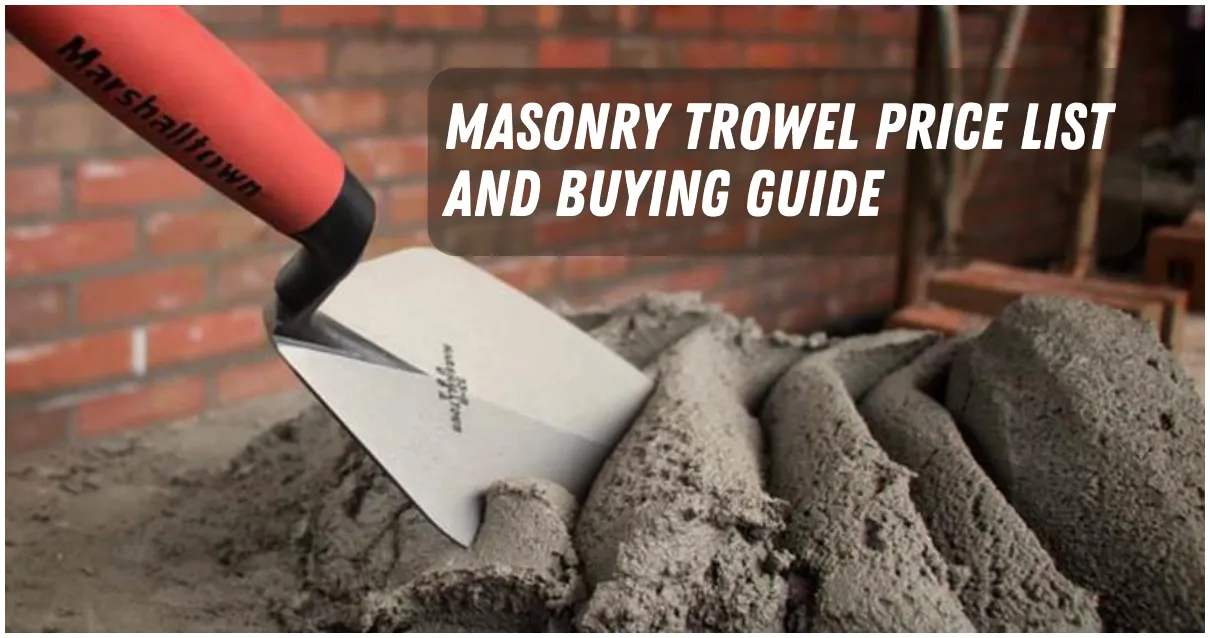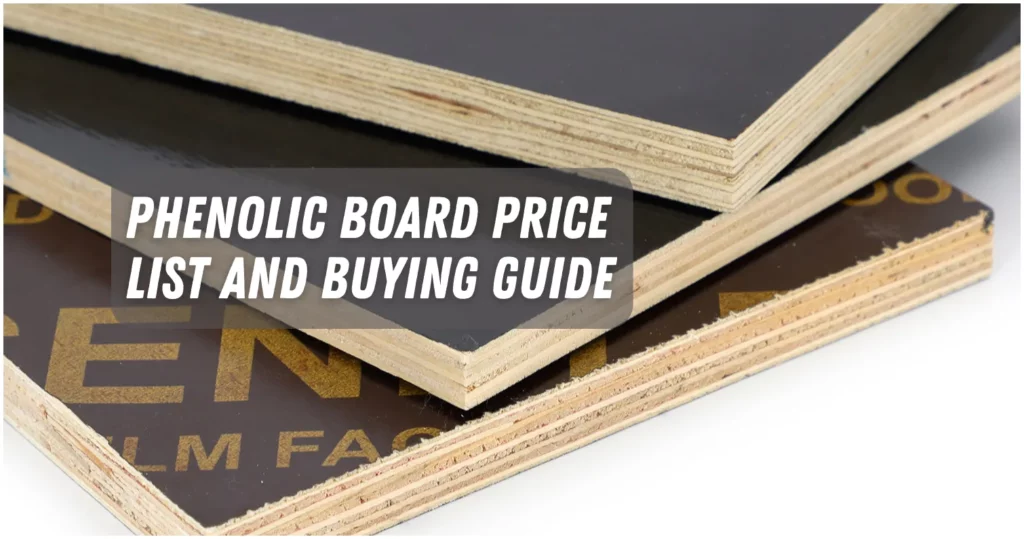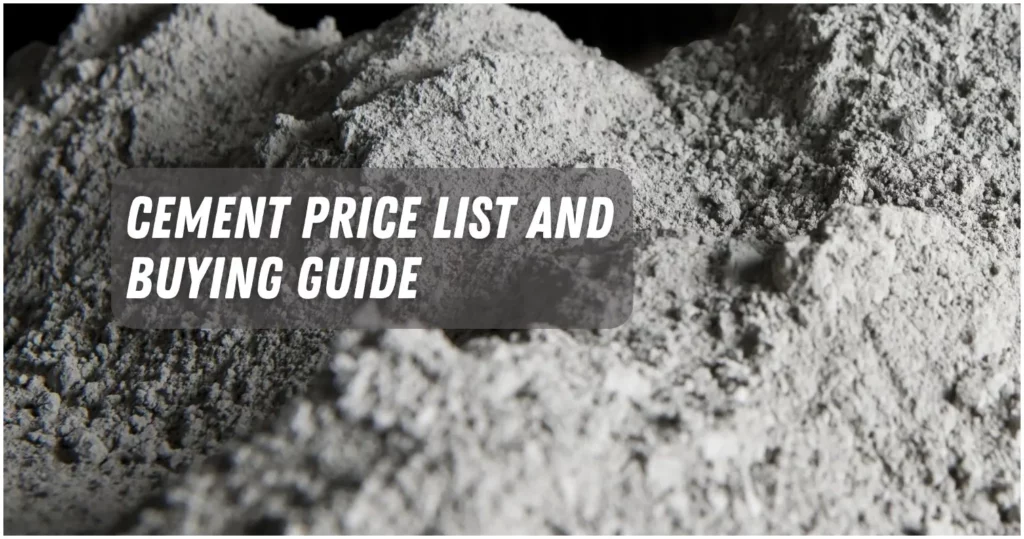Buying the right kind of masonry trowel at the right price will help you with your masonry projects.
A masonry trowel is a hand tool that is used to spread, shape, and smooth mortar or concrete.
It can also be used for plastering, laying bricks, setting tiles, and other building tasks. The price range is usually between ₱300 and ₱1,300.
In this article, we’ll talk about the price list for masonry trowels in the Philippines and some things you should know before buying one.
What is a Masonry Trowel?
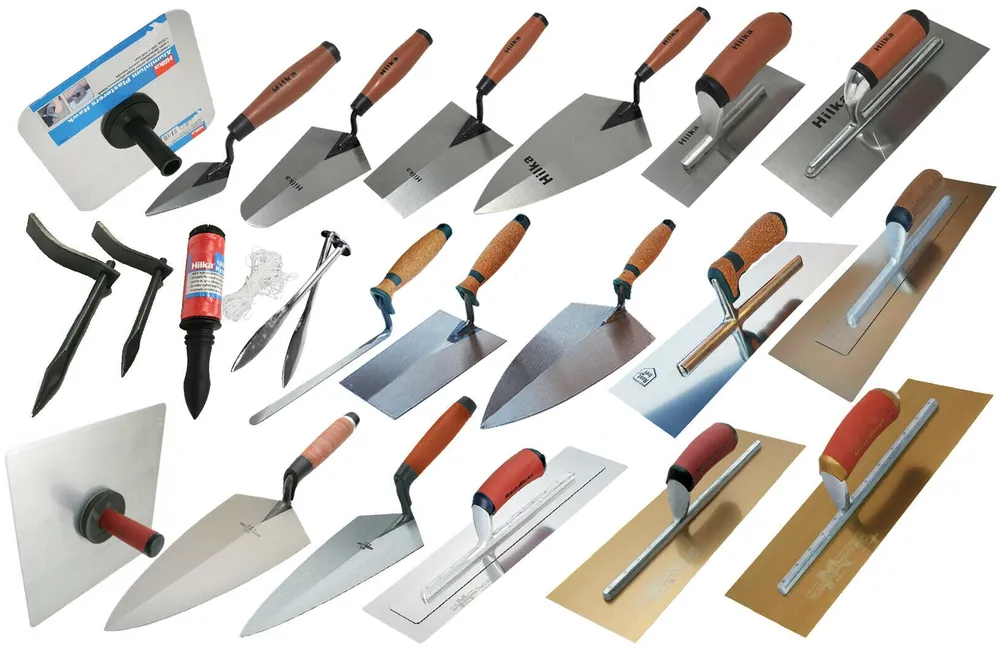
A masonry trowel is a flat piece of metal with a handle that is used to move concrete or mortar.
Depending on the type of work and the user’s preferences, the blade can be different sizes and shapes.
The handle can be made of wood, plastic, or metal, and it can be shaped and gripped in different ways.
Most knives have a shank or tang that connects the blade to the handle. This gives the knife stability and balance.
Masonry Trowels Type and Uses
There are many types of masonry trowels available in the market, each with its own purpose and function. Some of the most common ones are:
Brick trowel
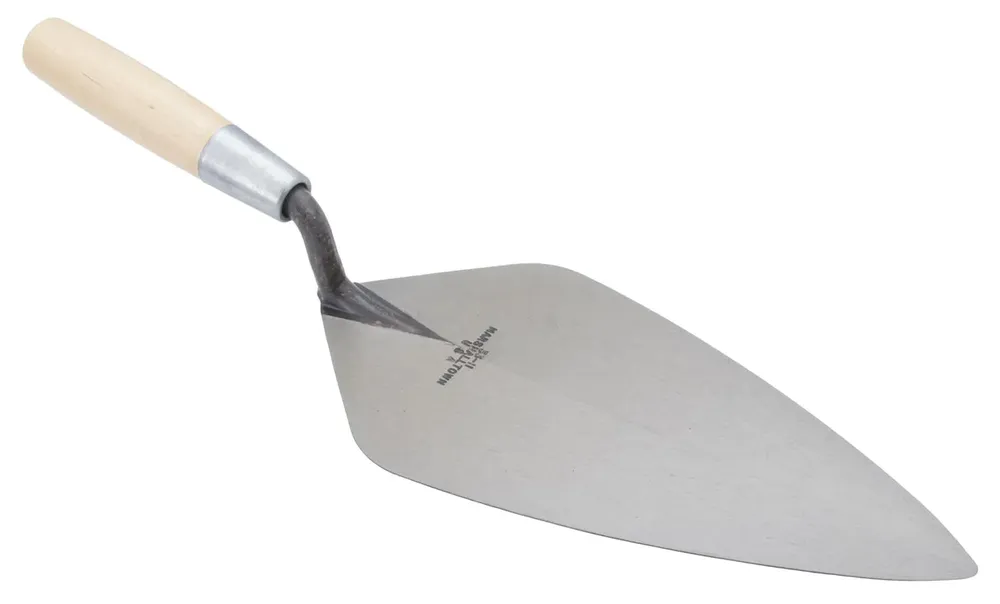
This is the most common type of masonry trowel. It scoops mortar from a board or bucket and applies it to bricks or blocks with its triangular or rectangular blade.
It can also be used to cut bricks and place them. Brick trowels are available in sizes from 6 inches to 14 inches.
Pointing trowel
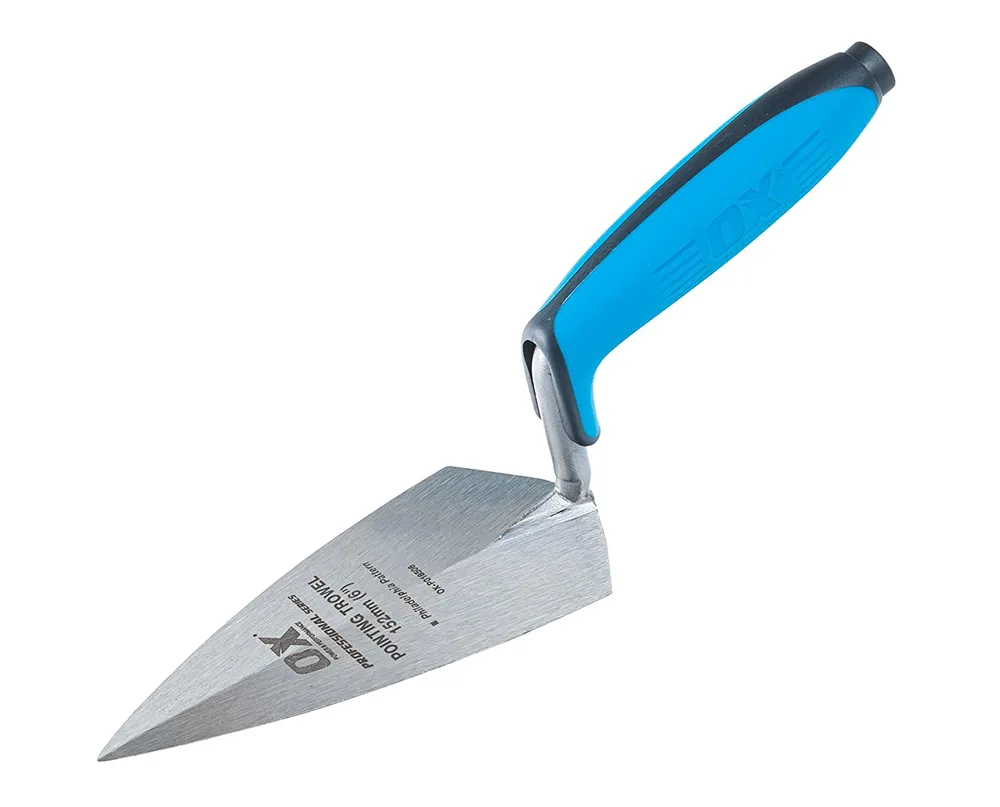
This is a small trowel with a narrow, tapered blade that is used to fill in gaps or cracks between bricks or stones.
You can also use it to fix broken mortar or make patterns on walls. Most trowels with points are between 4 and 6 inches long.
Margin trowel
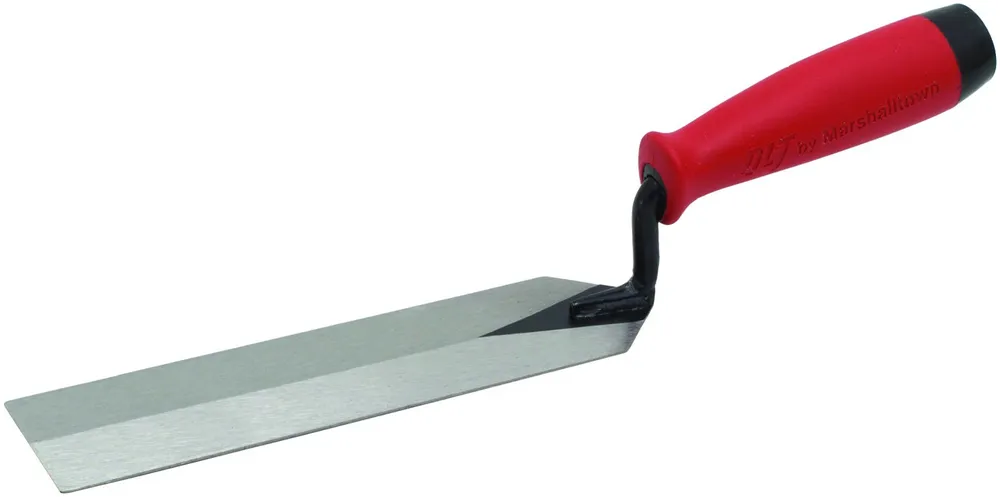
This is a small trowel with a straight-edged, squared-off blade. It is used to spread mortar or cement in tight spaces or corners where larger trowels can’t reach.
You can also use it to mix small amounts of mortar or cement or to scrape off extra material. Most margin trowels are between 5 and 8 inches long.
Plastering trowel
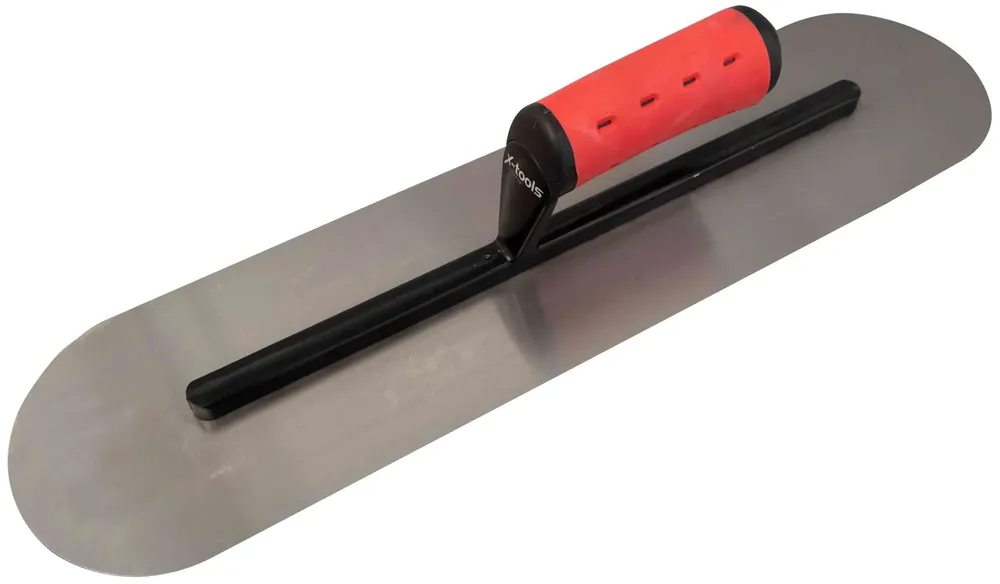
This is a big trowel with a blade that is rectangular and has rounded corners. It is used to put plaster on walls or ceilings, spread it out, and smooth it out.
It can also be used to smooth surfaces or give plaster different textures. Most trowels for putting up plaster are between 10 and 16 inches long.
Finishing trowel
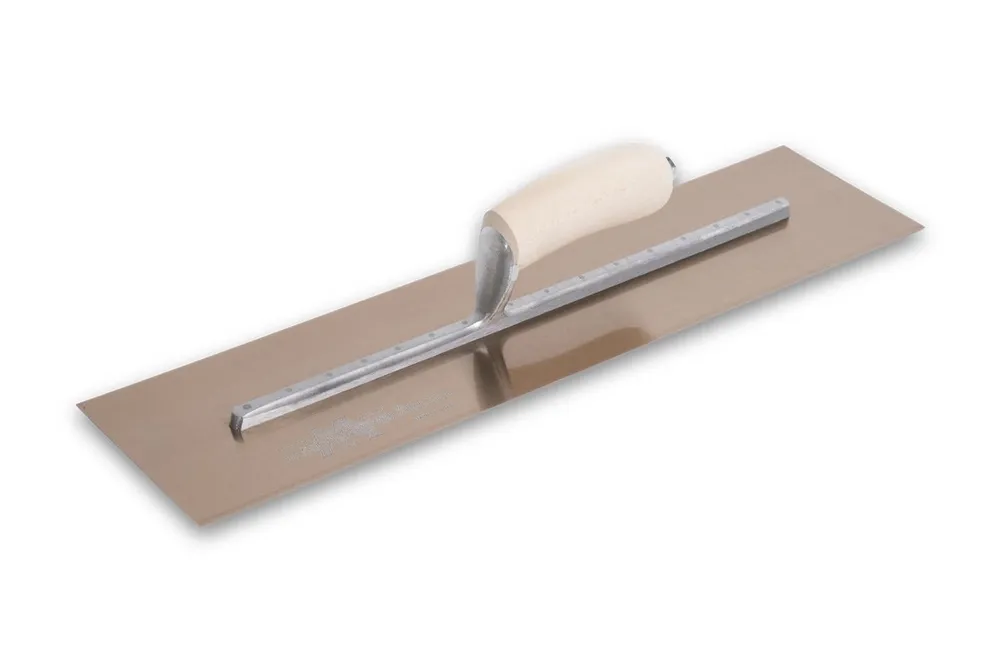
This is a big trowel with a straight-edged, rectangular blade. It is used to finish and polish concrete surfaces that have already been leveled with other tools.
It can also be used to smooth out concrete flaws or air bubbles. The length of most finishing trowels is between 12 and 18 inches.
Gauging trowel
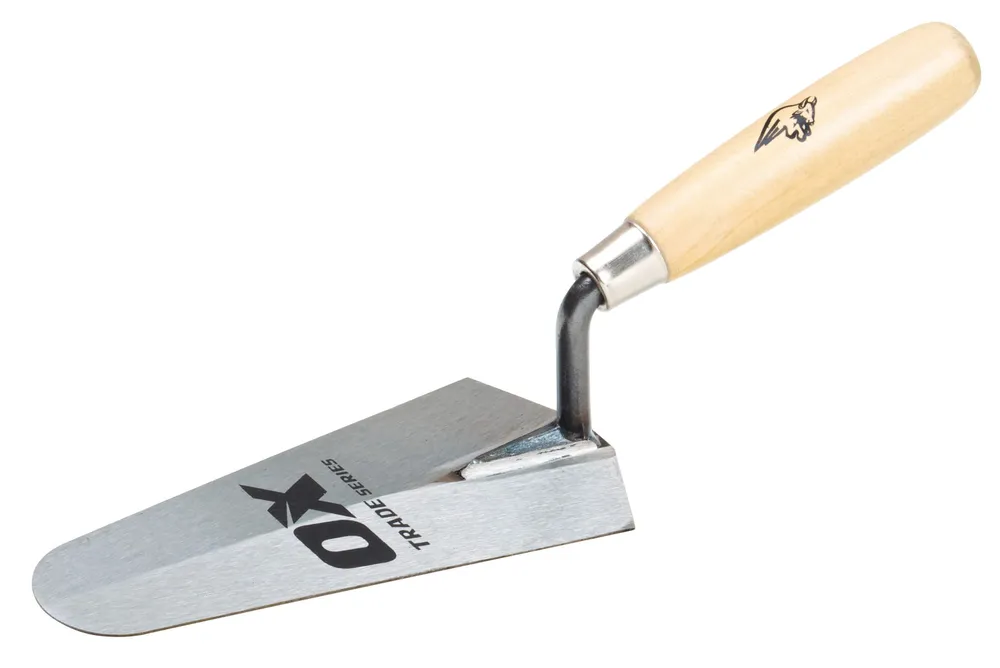
This is a small trowel with a blade that curves and ends in a point. It is used to measure and mix small amounts of mortar or cement for things like setting tiles or fixing cracks.
You can also use it to spread mortar or cement in tight spaces or around pipes or fittings. Most gauge trowels are between 4 and 7 inches long.
Masonry Trowels Price List
The price of masonry trowels depends on various factors such as the type, size, quality, brand and availability of the product.
However, here are some average prices of masonry trowels in the Philippines:
| Type of Trowel | Price |
|---|---|
| Pointing Trowel | ₱300 – ₱500 |
| Margin Trowel | ₱300 – ₱500 |
| Gauging Trowel | ₱300 – ₱500 |
| Brick Trowel | ₱600 – ₱900 |
| Plastering Trowel | ₱800 – ₱1,200 |
| Finishing Trowel | ₱900 – ₱1,300 |
These prices are only for reference and may vary depending on the actual seller and location.
How to Choose Masonry Trowels
When selecting a masonry trowel, keep these essential factors in mind:
- Type: Choose the right type of masonry trowel for your specific task, such as bricklaying or plastering.
- Size: Pick a trowel size that matches the scale of your project – larger for extensive, flat areas, and smaller for intricate work.
- Quality: Ensure the trowel is durable and performs well by checking for a sturdy, well-balanced blade and handle, a smooth, rust-resistant finish, and a comfortable, ergonomic grip.
- Brand: Opt for a reputable brand with positive reviews and good customer service, including warranty or guarantee policies, and responsive support.
How to Use Masonry Trowels
When using a masonry trowel, you should follow these steps:
- Prepare: Get all the materials and tools ready, like mortar or cement, bricks or stones, and protective gear.
- Apply: Use the trowel to spread the mortar or cement on the surface, pressing it firmly for a strong bond.
- Shape: Adjust the mortar or cement as needed, cutting or smoothing it to achieve the desired look.
- Clean: After each use, clean the trowel by wiping off any leftover material and washing it with water and soap if necessary.
Things You Should Know about Masonry Trowels
Before buying or using a masonry trowel, here are some things you should know:
- What is the main tool in masonry?
A masonry hammer is the most important tool for breaking, cutting, and shaping bricks, stones, and concrete. It can also hammer nails and other fasteners. - What is a trowel used for plastering?
A plastering trowel is a trowel that is used to spread plaster. It is used to put plaster on walls or ceilings and smooth it out. - When was the trowel used?
Since ancient times, people like the Egyptians, Greeks, and Romans have used the trowel to build structures and make art. - What is another name for trowel?
A floats or spatula is another word for a trowel. It is used to spread and smooth things like mortar, paint, and glue. With a spatula, you can flip and stir food while cooking. - What are masonry items?
Masonry items are things like bricks, stones, concrete blocks, tiles, mortar, cement, and more that are used in masonry works for building and art projects.
We hope that this article has helped you learn more about masonry trowels cement price in Philippines.
Check out our online store today if you want to buy good masonry tools at prices you can afford.
[ratings]